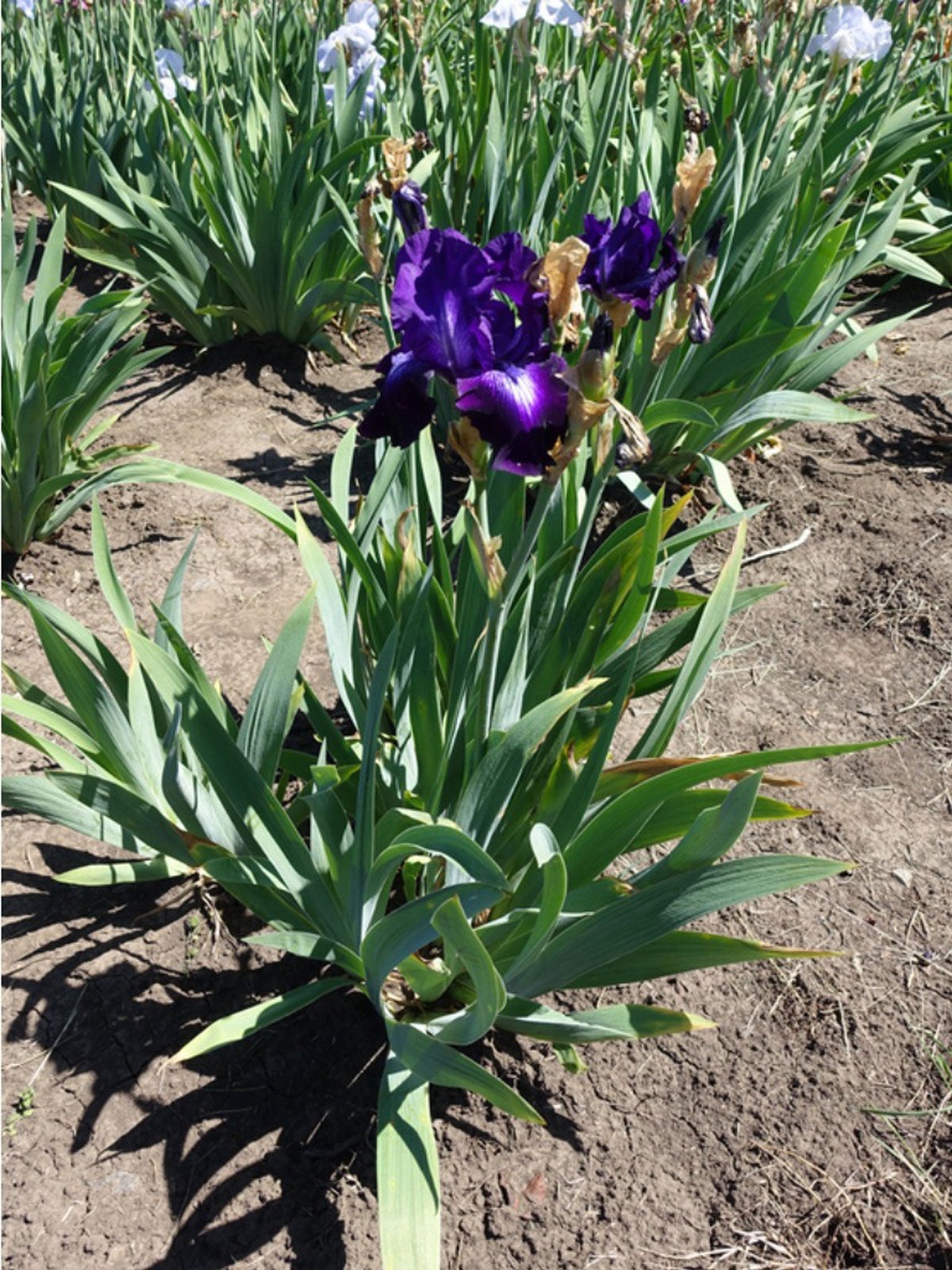Iris Rust Disease: Learn About Iris Rust Control In Gardens


Iris varieties are well loved for their striking blooms, range of colors, and ease of growing. These cheerful perennials aren’t too picky about conditions and reward gardeners with year after year of flowers. As with any plant, irises have their weaknesses, including the development of iris rust spots.
Know the signs of this disease and how to manage it to keep your plants healthy.
Identifying Iris Rust Disease
Iris rust is caused by Puccinia iridis, a fungal species. Most varieties of iris can be affected by this disease which causes a rusty, spot pattern on the leaves. Ultimately, the infection can kill leaves causing them to brown and die back but does not kill the whole plant. If you can control the disease, damage is typically minimal.
The main sign of this disease is spots that have a rust color on the plant’s leaves. The reddish brown lesions are rectangular in shape with a powdery texture. They may develop a yellow margin and they crop up on both sides of leaves. Eventually, if there are enough iris rust spots, a leaf will turn completely brown and die.
Preventing and Treating Iris Rust
Iris rust control begins with prevention. Conditions that favor the disease include humidity and moderately warm temperatures. Excessive nitrogen fertilization can also make irises more vulnerable to the infection.
The fungus can spread from one leaf and plant to another and also overwinter in plant material if temperatures remain mild. Removing and destroying any dead plant material in the fall is important for preventing the disease. It is also crucial in stopping the spread of the fungus if you have already identified it. Remove damaged leaves and dispose of them. Also, never plant irises in the same area where you have seen rust previously.
You may also want to take steps to treat rust on iris leaves if you have a severe infection. Fungicides can help control the disease. Try those that contain mancozeb, myclobutanil, or chlorothalonil. A local nursery or extension office can help you choose a fungicide and instruct you on the proper application process.
Sign up for the Gardening Know How newsletter today and receive a free copy of our e-book "How to Grow Delicious Tomatoes".

Mary Ellen Ellis has been gardening for over 20 years. With degrees in Chemistry and Biology, Mary Ellen's specialties are flowers, native plants, and herbs.